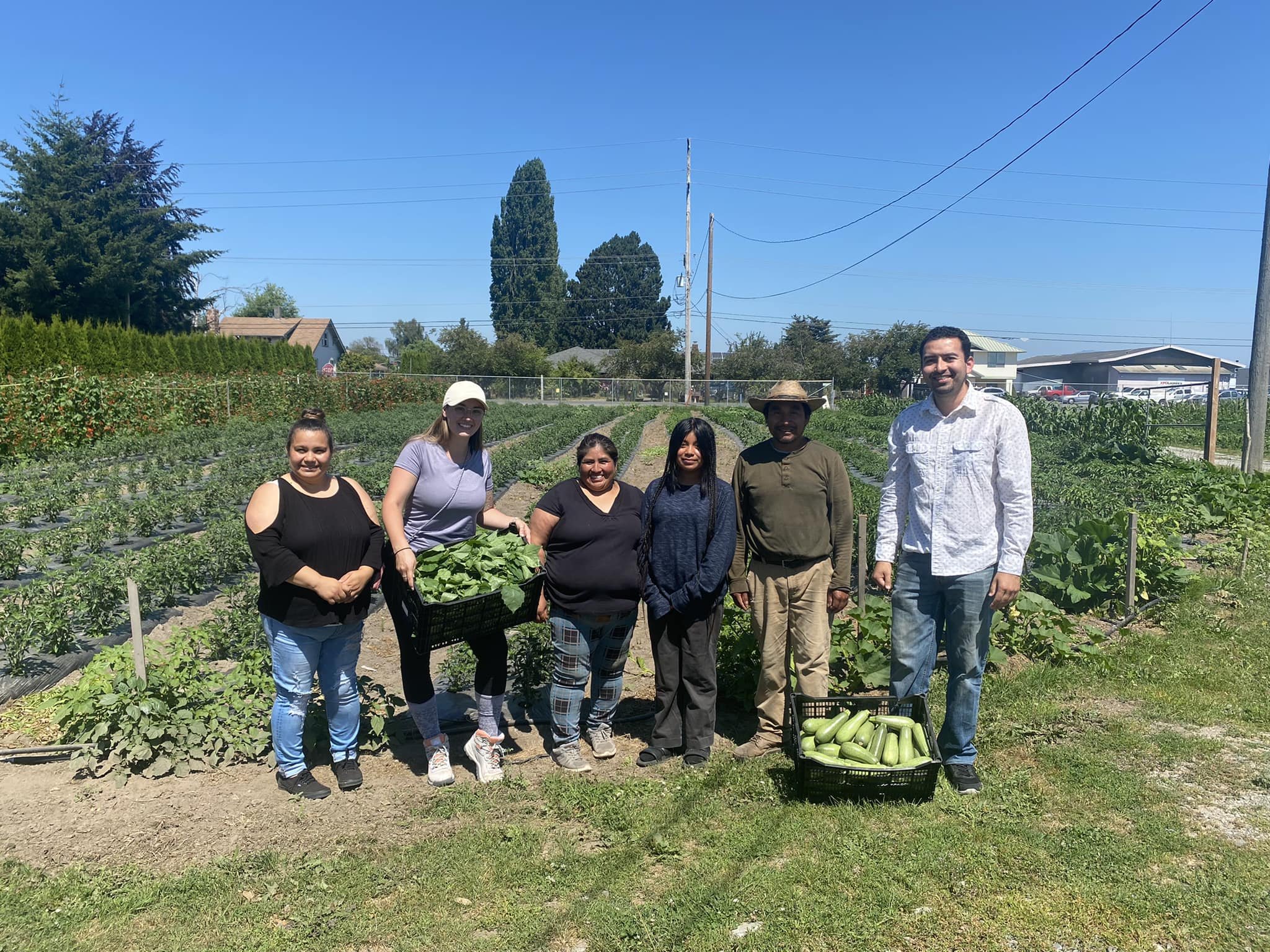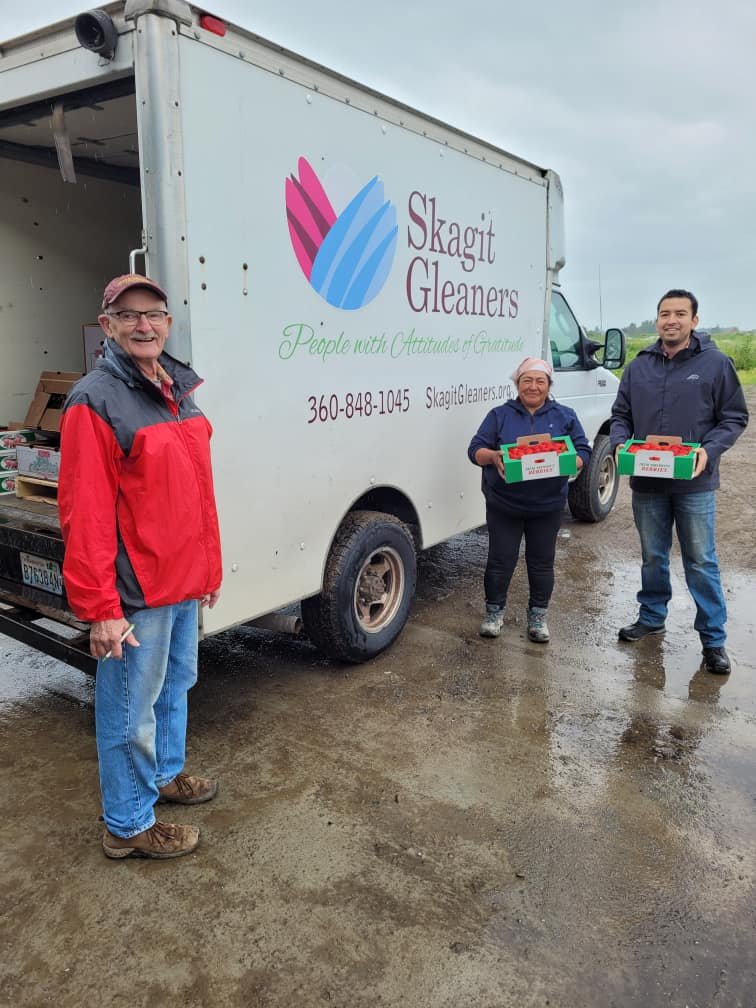
Targeted Migrant Programs
Food security struggles are exacerbated for members of our community who lack work authorization statuses and are otherwise excluded from SNAP/EBT food programs. We see this largely with our migrant farmworker community, where only 33% of migrant farmworkers are citizens of the US. As is, 56% – 64% of migrant farmworkers are food insecure (Borre et al., 2010 & Quandt et al., 2004), compared to 8% of their white counterparts (USDA, 2020).
This is largely due to…
A lack of production of culturally relevant food
Isolated geographic locations of migrant housing complexes
Disparate wages
Artificial barriers for federal food programs like the Supplemental Nutrition Assistance Program (SNAP)
Limitations with the Special Supplemental Nutrition Program for Women, Infants, and Children (WIC)
A lack of cultural awareness and trust with service providers/agencies.
It is for these reasons that Skagit Gleaners has brought strategic and creative programming to address racialized food injustices that are deeply felt by our migrant farmworker communities.
The programs we have implemented are listed below:
Why Is This Important?
BIPOC Farmer Initiative
Skagit Gleaners purchases fresh fruits and vegetables exclusively from local BIPOC-owned farms. While we try to get most of our food donated through grocery rescue efforts, we acknowledge that some businesses do not have the economic elasticity to donate imperfect foods. Purchasing these foods from BIPOC-owned farms allows them to thrive and contribute to our community at large.
Family Referral Program
This program provides free reclaimed food and clothing to migrant/farmworker families through a direct referral from Skagit County school districts. Vouchers for this program are provided directly to migrant families during school registration and intake. Recipients of this program receive up to 120 lbs of free groceries each week, in addition to an unlimited amount of gently used clothing and household items.
Culturally appropriate food projects
In partnership with Catholic Community Services and Northwest Agriculture Business Center, we complete a handful of culturally appropriate food distributions each year to Mixteco and/or Mexican indigenous families. These are completed in "pop-up" locations that are accessible to the population served.




